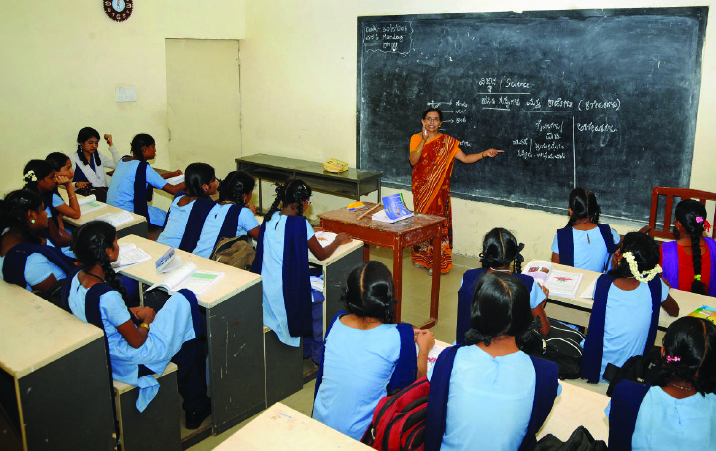NEW DELHI: The government plans to rope in thousands of retired teachers to leverage their intellectual capital and mentor schoolteachers.
The education ministry will also devise a national professional standard for teachers and train 5.6 million of them through online and offline mode, which will help better implement school reforms.
“There are a number of senior and retired teachers. They will be used for individual mentoring of schoolteachers and educators through constant online and offline support on subjects, themes and pedagogy,” an annexure of the budget document underlined.
Roping in retired teachers will have multiple benefits, including utilization of experienced teachers in classrooms, more so in rural India, where the shortage of teachers and dearth of trained teachers are real issues.
It will also foster community involvement and promote the concept of mentoring in schools with very little expenditure.
“This is one of the few positives for the education sector. Utilization of experienced manpower and development of professional standards will be key to improving the educational outcome. At least teachers and their efficiency have found some mention this time though the education outlay looks inadequate,” said Narayanan Ramaswamy, leader, education and skill development practice, at consulting and auditing firm KPMG.
The budget annexures said that standards will be developed for all schoolteachers in the form of the National Professional Standards for Teachers. These will enhance the capabilities of teachers and will be followed by all 9.2 million teachers of the public and private school systems in the country.
The budget said that students have so far been evaluated on unidimensional parameters and there will be a complete shift in this. Assessments will be done not only to judge the cognitive levels of the learner but also to identify the unique strengths and potential of children. Last year, 3 million elementary school teachers were trained digitally and in 2021-22 “we will enable the training of 56 lakh schoolteachers”, it said.
A national digital educational architecture will be set up within the “context of a digital-first mindset where the digital architecture will not only support teaching and learning activities but also enable educational planning, governance and administrative activities of the Centre, states and Union territories. It will provide a diverse education ecosystem architecture for the development of digital infrastructure, a federated but interoperable system that will ensure the autonomy of all stakeholders, especially states and Union territories,” it said.
Courtesy: LiveMint
